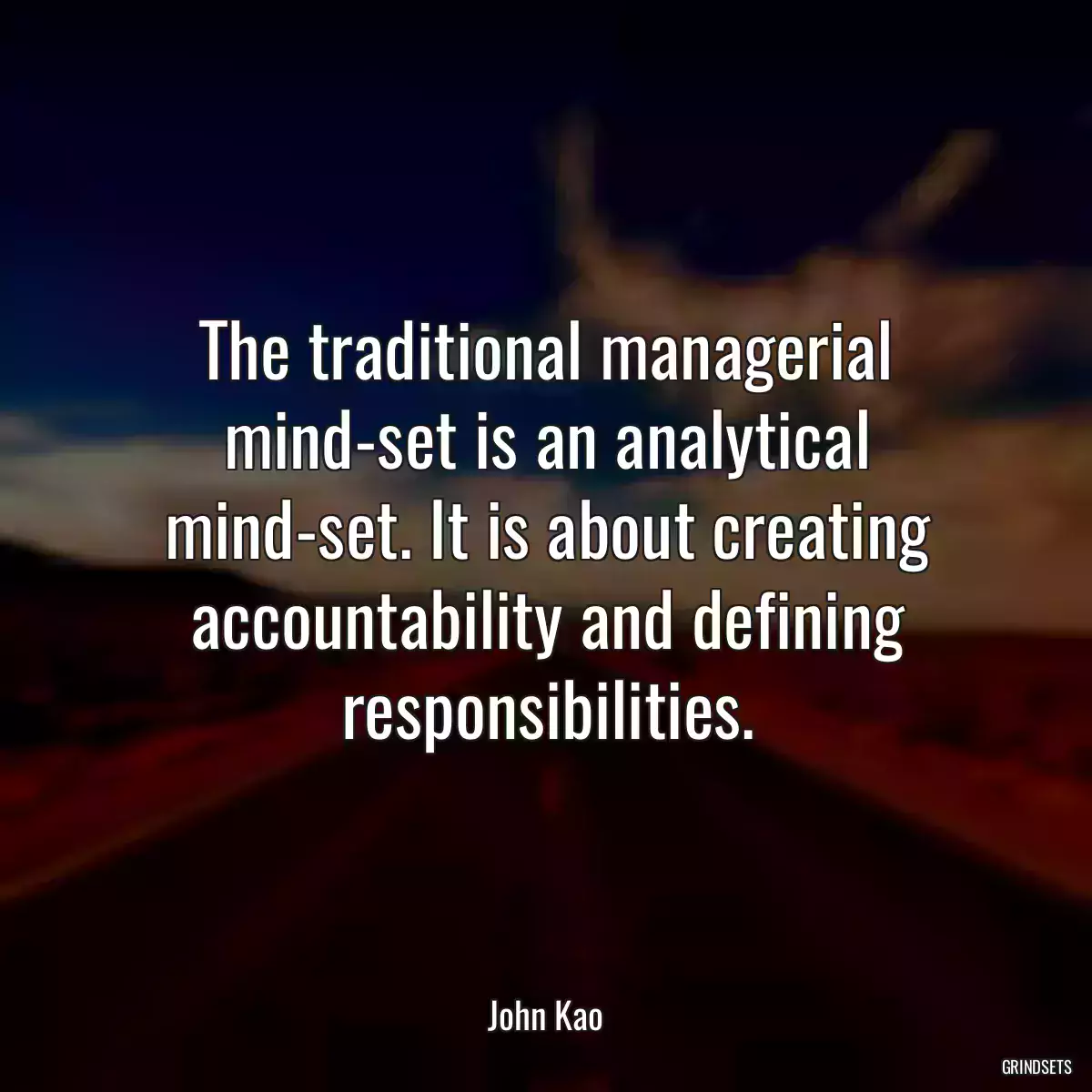
The traditional managerial ...

More phrases
Being self-made is a state of mind, and once you put that mentality to work, your success will come.
Dave East
A lot of people change for good. Some people just fall off. Just trying to progress in anything, no matter what you're doing, I feel like any progression you make... some people aren't gonna be around you that were around you.
Dave East
What a distressing contrast there is between the radiant intelligence of the child and the feeble mentality of the average adult.
Don't settle in the land of barely enough. That is where you are, it is not who you are. That's your location, it's not your identity. No matter what it looks like, have an abundant mentality.
Everything in your life, every experience, every relationship is a mirror of the mental pattern that is going on inside of you.
Quotes from the same author
You are able to monitor and police your standards of quality once you have defined them.
John Kao
You are able to create an environment so that the creative process can take place and that you can get people to perform at their highest levels.
John Kao
The mark of the developed intellect is that it could accommodate two contradictory ideas at the same time.
John Kao
You would not let your kids do whatever they want. So the challenge is to create accountability in a non-mechanistic way. You cannot come in with a clipboard and check off boxes and figure out why something has not been done on schedule.
John Kao
There's real "right brain" creativity that goes into all of the organizational processes that a company utilizes and must continually reinvent in order to conduct its business. But there are also the "left brain" accounting functions that must continually ask how the company is doing financially and whether the creative processes are working for the bottom line.
John Kao